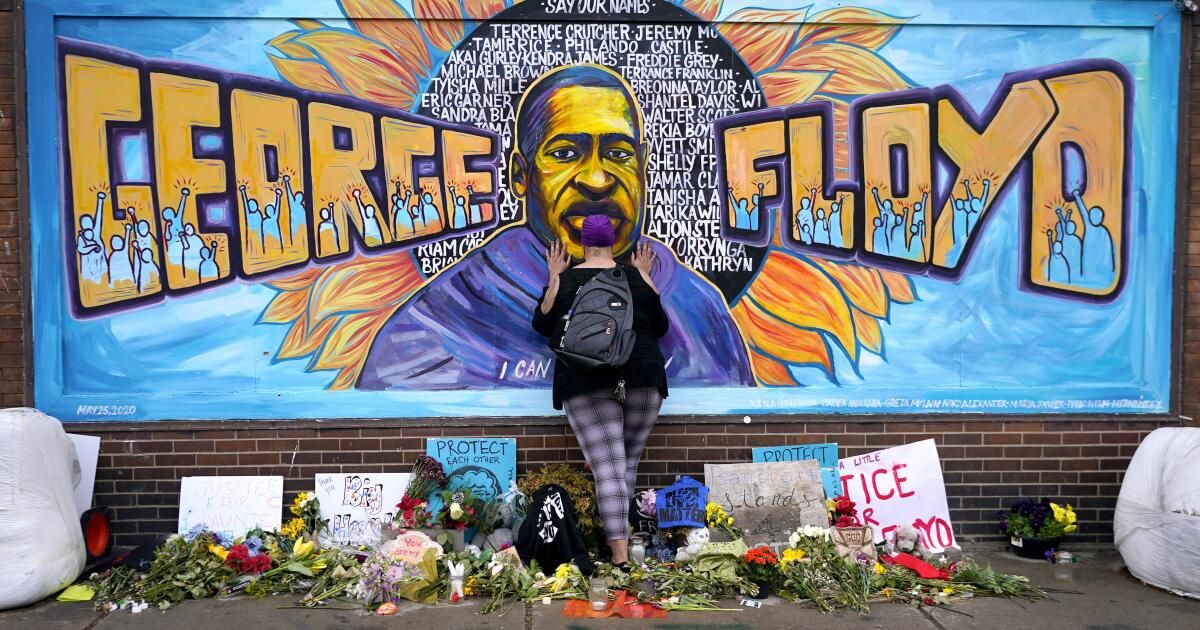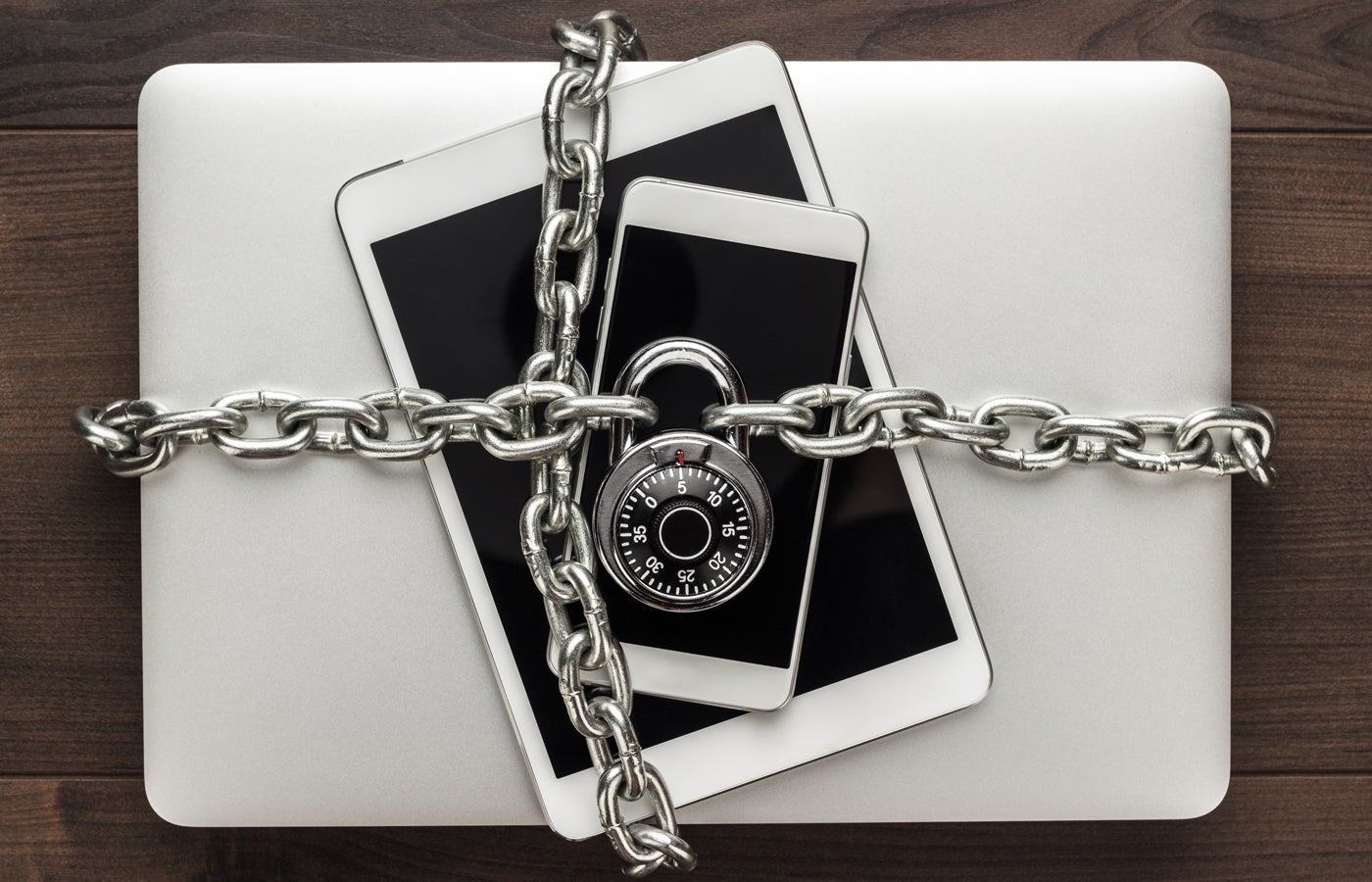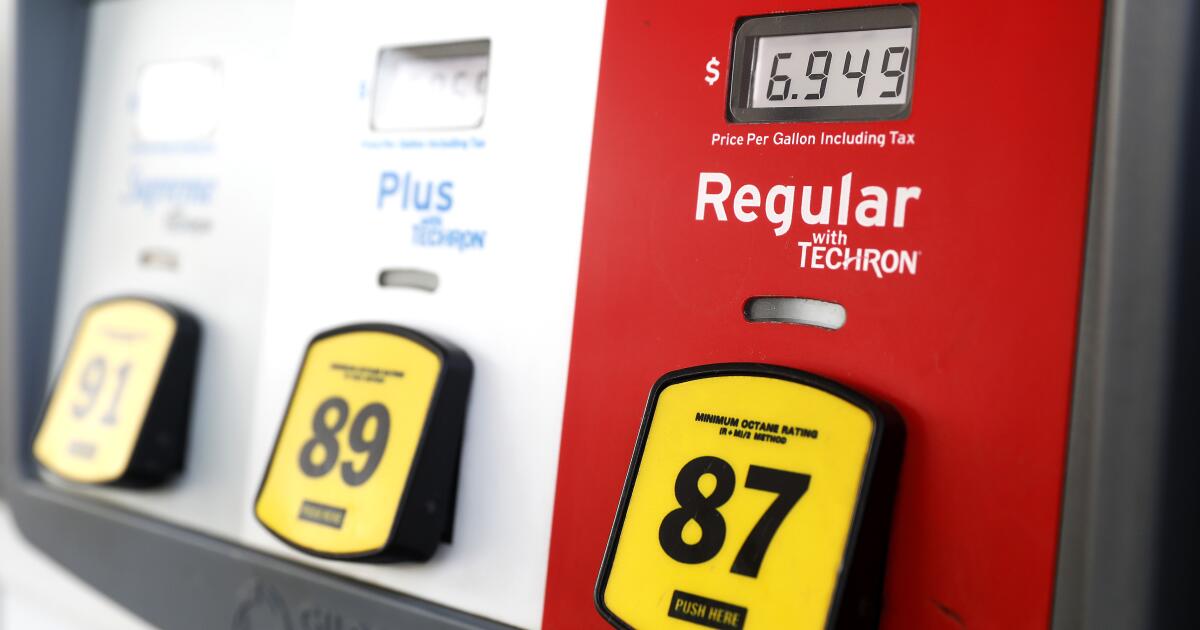Four years after George Floyd was arrested and killed by Minneapolis police, the nation is in the midst of a backlash movement attempting to rewrite the narrative, legacy, and even the facts of the murder.
Call it the anti-reckoning. And it is a disturbing sign of how hard-won progress on police reform and racial justice is under attack by powerful and entrenched interests.
Floyd, a Black man, was arrested around 8 p.m. on Memorial Day, May 25, 2020, after police received a call reporting someone trying to pass a counterfeit $20 bill. Officer Derek Chauvin knelt on Floyd's neck despite Floyd's anguished cries because he couldn't breathe. After nine and a half minutes, Floyd was dead.
The murder sparked months of protests against police brutality and racism in American society, especially in the criminal justice system. The demonstrations were unprecedented; Widespread protests had marked previous murders of black men and boys: Trayvon Martin in Florida, Eric Garner in New York, Michael Brown in Ferguson, Missouri, and many others. And there were blatant acts of white supremacist backlash, including the mass killing of black churchgoers in Charleston, South Carolina, in 2015, and the ugly Unite the Right rally in Charlottesville, Virginia, in 2017.
But anxiety over the COVID-19 pandemic and weeks of lockdowns had turned the country into a pressure cooker. With Floyd's murder, it exploded.
In statehouses and town halls, lawmakers began to seriously consider the role of race and racism in policing and public safety. Long-delayed discussions about unarmed response to incidents involving mental illness and drug-related behavioral problems are finally back on track. New laws were passed to clarify judicial procedures for racial inequalities. Voters continued the trend of electing a new generation of prosecutors who put the pursuit of justice before demanding the longest possible sentences.
Even American companies joined in briefly. Companies pledged to pay billions of dollars to combat systemic racism.
The change in attitude and policy was called a racial reckoning.
In law and policy there have been some lasting advances, such as the banning of fatal police chokeholds in some jurisdictions that still allowed them and the collection of data showing the extent to which race affects police practices.
But in Congress, the George Floyd Justice in Policing Act, which would have spurred sweeping police reforms, was defeated twice by near party-line votes.
In Los Angeles and most other jurisdictions, officials have failed to take unarmed response beyond the pilot stage, and are still talking about alternatives to police only for traffic and parking violations. The county's Care First plan to realign the response to lower-level crimes from jail to health care, treatment and other social service agencies is moving at a snail's pace.
Police unions, traditional prosecutors and conservative politicians have taken advantage of the slow progress of reforms and fears of crime, real and imagined, to reject not only the post-Floyd reforms but also those adopted during the previous decade. In California, that means another attack on Proposition 47, this time falsely blaming it for homelessness.
Police initially widely criticized Chauvin as a bad cop in an otherwise impeccable system. The “bad apple” theory formed the basis for opposition to the George Floyd Justice in Policing Act and other reforms.
Then came questions about the facts of Floyd's death. Far-right commentators claim that Chauvin did not actually kill Floyd, but instead arrested a man who was already dying from a fentanyl overdose. The officer was then allegedly misled by a corrupt criminal justice system out of fear or in thrall to Black Lives Matter.
This nonsense has been thoroughly analyzed and debunked, but it remains an article of faith among a certain core of conspiracy theorists who seem to believe that prosecutors, judges and juries were corrupted and an innocent man imprisoned. The irony in this line of thinking is striking: this justice system supposedly operated for years without the slightest taint of the racism that hundreds of thousands of Americans had been protesting against, until a white police officer was tried for killing a man. black. . Then suddenly the system became unreliable and illegitimate.
There has also been a constant effort to redefine the protests as gang violence or even insurrection, as a kind of defensive projection by defenders, including former President Trump, of the January 6, 2021 mob assault on the United States Capitol. United to block Joe's certification. The election of Biden to replace Trump.
It is very true that the 2020 Floyd protests were marked by arson and property destruction, resulting in more than $1 billion in losses. None of that is right.
But the claim that the perpetrators acted with impunity while the January 6 attackers were imprisoned is demonstrably false. Thousands of people have been arrested and criminally punished, including imprisonment, for acts that crossed the line from protest to crime. In fact, analyzes show that people arrested for crimes committed in 2020 were punished unusually harshly.
The ongoing battle between the George Floyd reckoning and the anti-reckoning pushback is a battle over the role of truth in our society and its institutions. But if we believe that the facts are real and independent of ideology and political power, we must recognize that what happened to Floyd was real, horrible and unjust. And that it was not something isolated, but an example of a failure in our criminal justice system that must be remedied.












